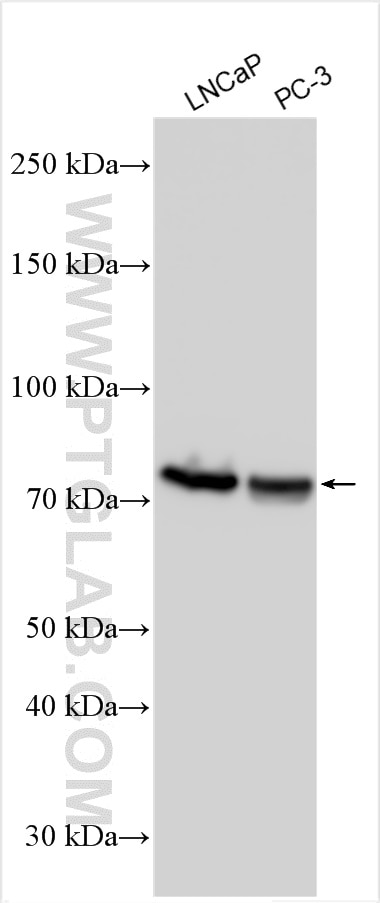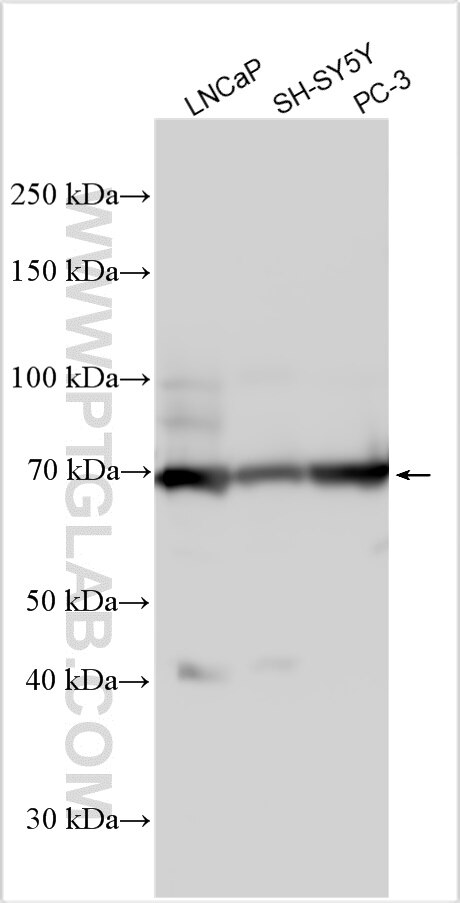Tested Applications
| Positive WB detected in | LNCaP cells, PC-3 cells, SH-SY5Y cells |
Recommended dilution
| Application | Dilution |
|---|---|
| Western Blot (WB) | WB : 1:1000-1:4000 |
| It is recommended that this reagent should be titrated in each testing system to obtain optimal results. | |
| Sample-dependent, Check data in validation data gallery. | |
Product Information
30693-1-AP targets GCNA in WB, ELISA applications and shows reactivity with Human samples.
| Tested Reactivity | Human |
| Host / Isotype | Rabbit / IgG |
| Class | Polyclonal |
| Type | Antibody |
| Immunogen |
CatNo: Ag33720 Product name: Recombinant human ACRC protein Source: e coli.-derived, PGEX-4T Tag: GST Domain: 1-137 aa of BC136259 Sequence: MDGCKKELPRLQEPEEDEDCYILNVQSSSDDTSGSSVARRAPKRQASCILNVQSRSGDTSGSSVARRAPKRQASSVVVIDSDSDEECHTHEEKKAKLLEINSDDESPECCHVKPAIQEPPIVISDDDNDDDNGNDLE Predict reactive species |
| Full Name | acidic repeat containing |
| Calculated Molecular Weight | 691 aa, 76 kDa |
| Observed Molecular Weight | 76 kDa |
| GenBank Accession Number | BC136259 |
| Gene Symbol | GCNA |
| Gene ID (NCBI) | 93953 |
| RRID | AB_3086389 |
| Conjugate | Unconjugated |
| Form | Liquid |
| Purification Method | Antigen affinity purification |
| UNIPROT ID | Q96QF7 |
| Storage Buffer | PBS with 0.02% sodium azide and 50% glycerol, pH 7.3. |
| Storage Conditions | Store at -20°C. Stable for one year after shipment. Aliquoting is unnecessary for -20oC storage. 20ul sizes contain 0.1% BSA. |
Background Information
Germ cell nuclear acidic protein (GCNA) has been extensively used as a germ cell marker for almost 30 years. Recently, mutations in GCNA have been linked to azoospermia in humans, defining GCNA as a clinical determinant of human infertility.
Protocols
| Product Specific Protocols | |
|---|---|
| WB protocol for GCNA antibody 30693-1-AP | Download protocol |
| Standard Protocols | |
|---|---|
| Click here to view our Standard Protocols |






